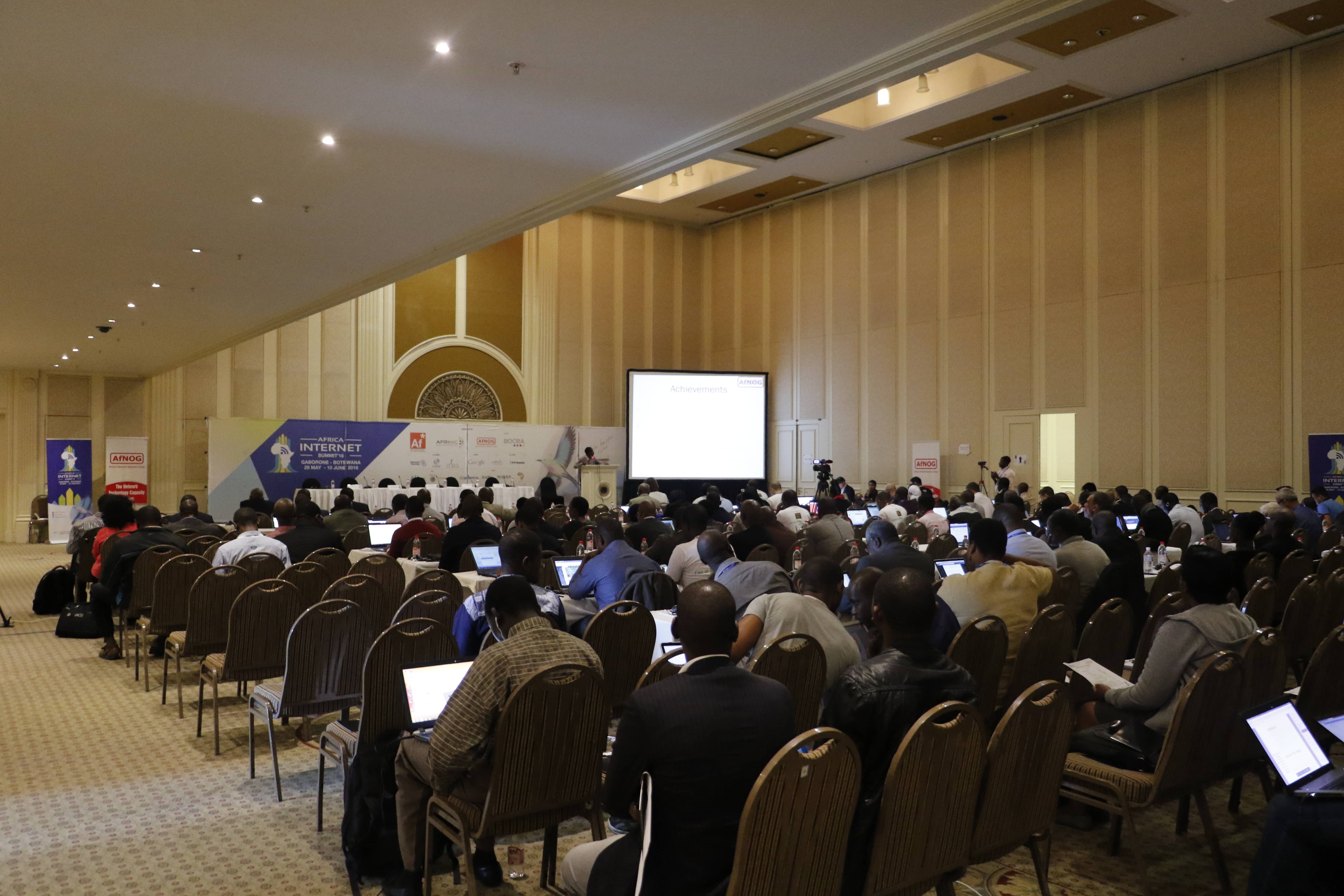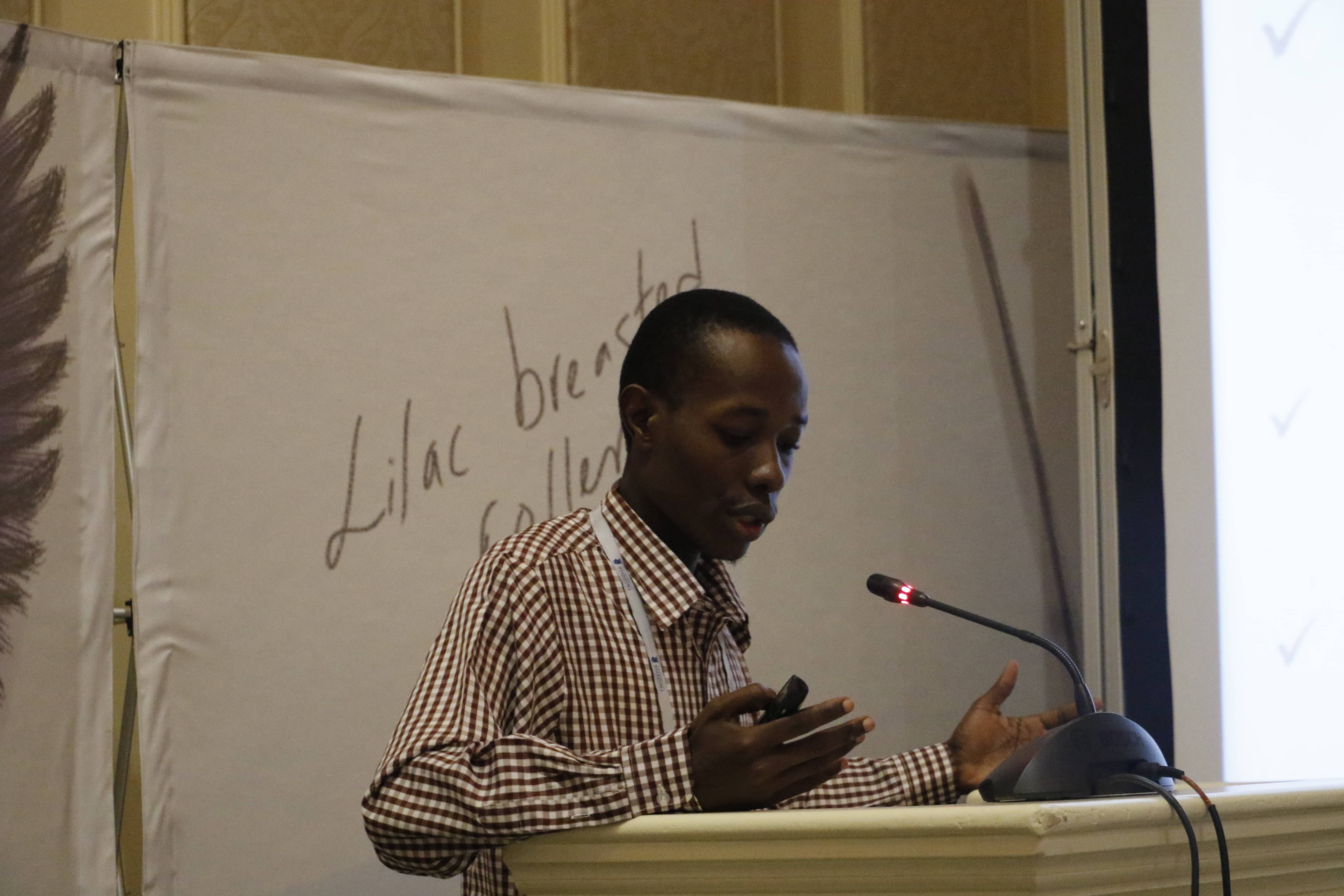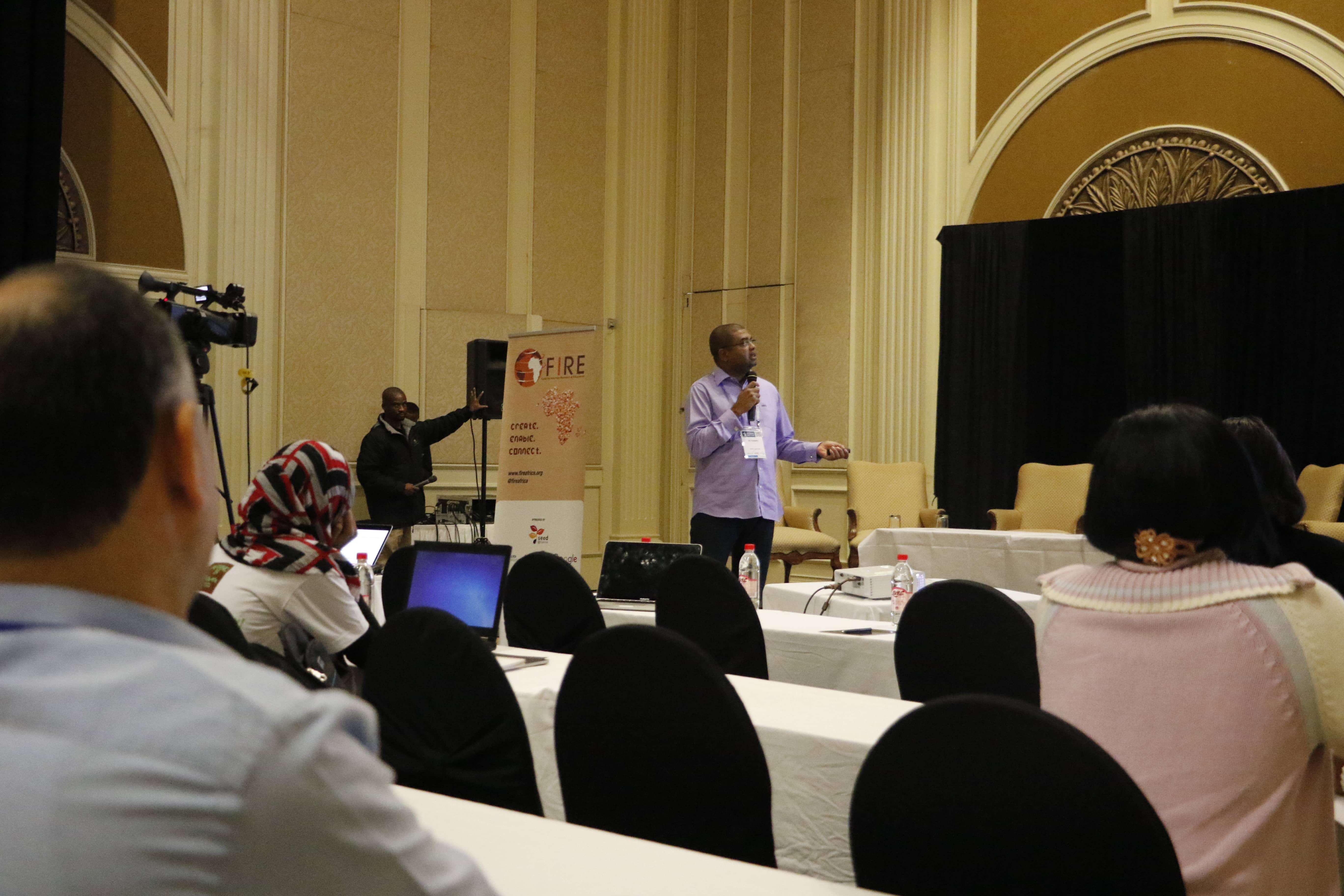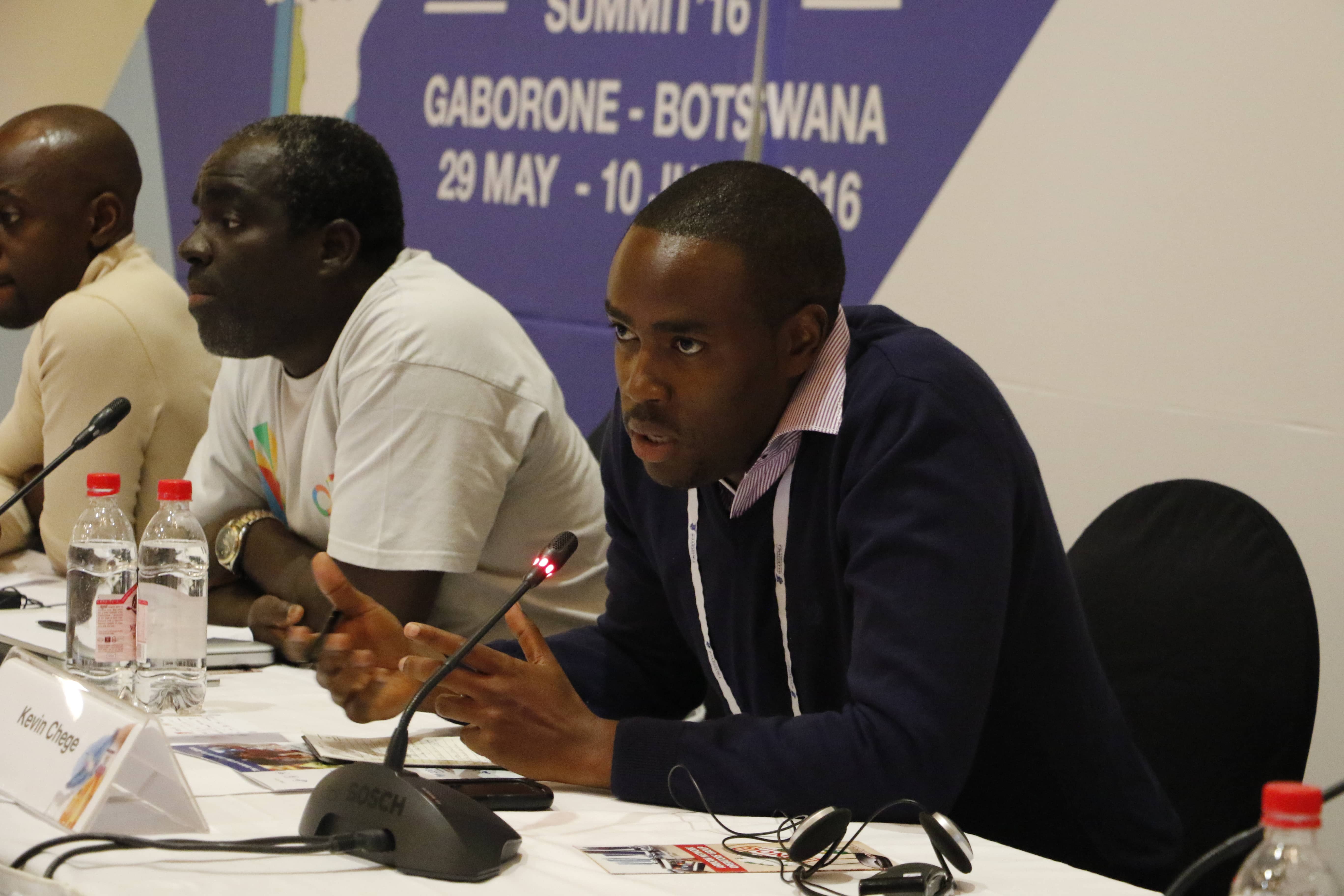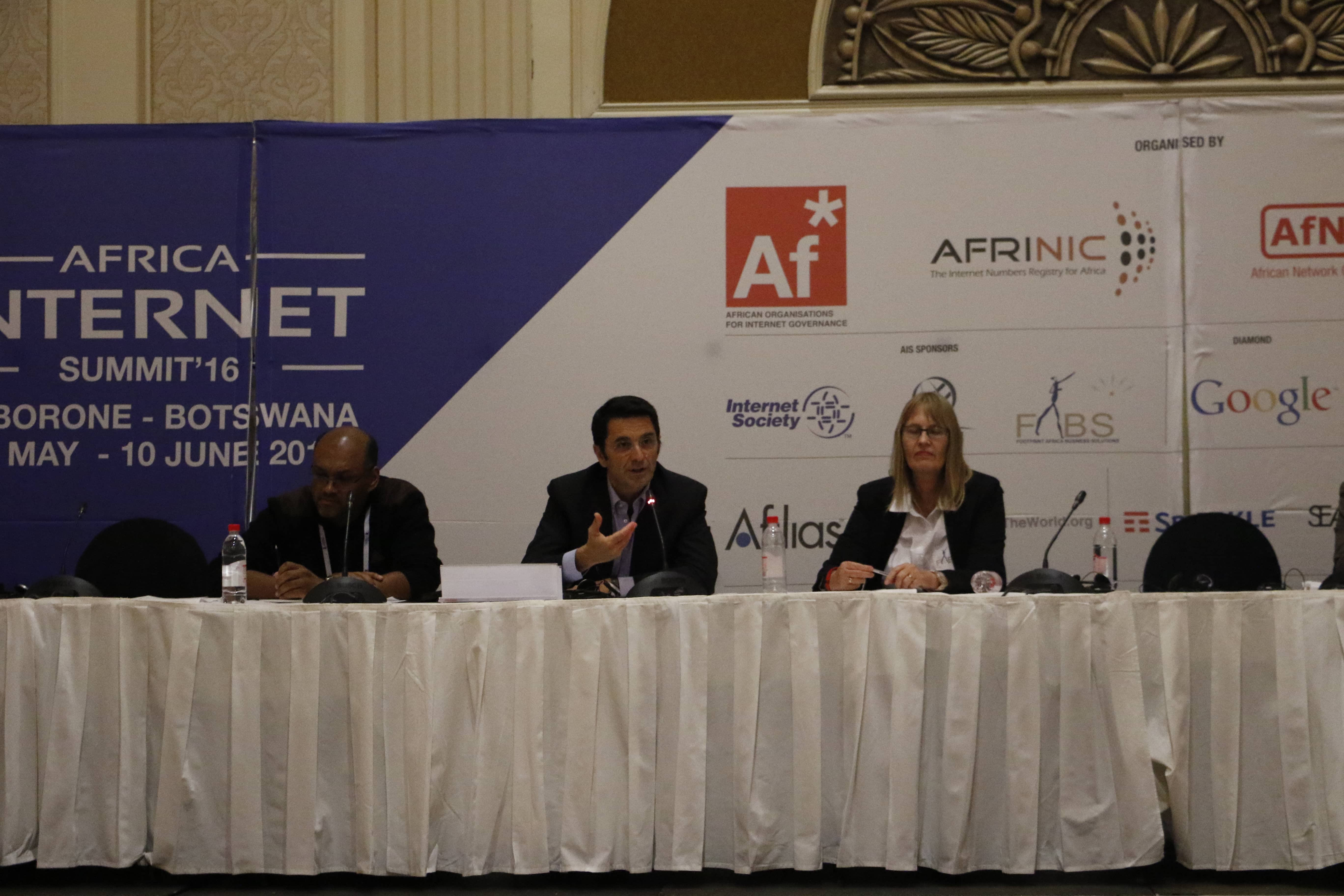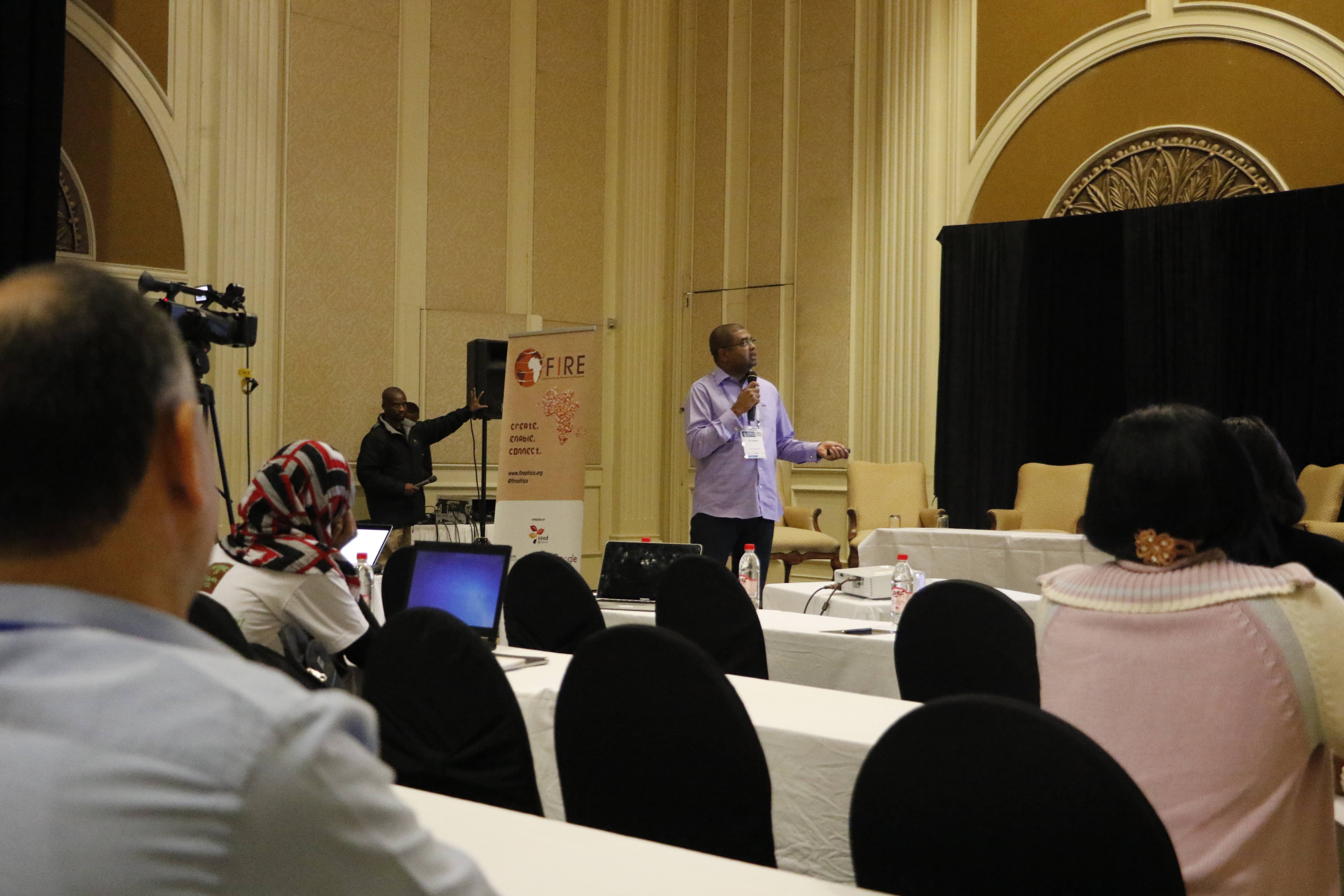Highlight of the Day: AfNOG session
The first day of the AIS'16 Plenaries kicked off with the AfNOG session. There was a packed agenda on offer, which saw several interesting presentations take place.
First session:
- AFNOG formally opened the day with a Welcome Message for the attendees.
- This was followed by a series of reports from the local Network Operators' Groups (NOGS):
- AfNOG by Noah Maina
- BSDCongo by Serge Illunga
- GhNOG by Vitus Aborogu
- NgNOG by Dewole Ajao
- Next up DotAfrica, ICANN Africa and AfREN offered messages of goodwill to the community through their representatives: Lucky Masilela, Pierre Dandjinou and Barry Boubakar.
- Kathy Brown, Internet Society (ISOC) CEO, gave an inspiring keynote speech.
Second session:
- Alain Aina gave the Secret Working Group Report
- Next, Kevin Chege gave a presentation on "Online Track Zero Course: An Update". Kevin's talk focused on the successes, challenges and lessons learnt from the first year of running the course.
- This was followed by Mukom Tamon, AFRINIC's Head of Capacity Building and Community Development, who talked about "The Making of certi::6 - AFRINIC’s IPv6 Certification System". Mukom gave an overview on the planning and execution of that project so as to give the community deeper insights into the program, and ways in which they can benefit
- Alain Aina was back on stage for the day's next presentation, "Change on IPv4 semantics and its implications". Alain's talk focused on the various deployments of NAT, and their evolution. discussed the consequences including the change in IPv4 address semantics and the implications.
Third session:
- After lunch, Logan Velvindron, AFRINIC's Research & Development Support Engineer, updated the community on the recent "DNSSEC Signer Migration at AFRINIC". The goal of this article is to share with the community AFRINIC's experience in migrating a signer from an older version to a newer version of OpenDNSSEC. This, without breaking the validity of zones at any time. Migration was scheduled and was executed over several days while zones were kept secure. Slides
- Edward Lewis was up next with his presentation, "Managing the DNS Root Zone KSK". Edward's presentation covered what the DNS Root Zone KSK is, how ICANN achieves excellence in managing it to enable trust to be placed in a secure DNS.
- This was followed by Lu Heng, who gave a presentation on "Invisible Hijacking". Lu talked about a very unique case of IP hijacking on how someone became DECIX customer, then announced an IP range to Yahoo though direct peering, sending millions of spam, but still remained invisible to globe routing table.
Fourth session:
- Kicking off the final session of the day Giuseppe Valentino talked about the " Dynamics of regional Hubs development The Sicily Case". The presentation highlighted the importance of the hubs in the development of the Internet worldwide and provides the case of Sicily Hub as a growing IP gravitational point in the Mediterranean basin and on the situation of hubs development in the African content. Slides
- Karien Bornheim then gave a presentation on "Cyber Security: Identity Management" and spoke about its importance in this era of multiple online identities. Slides
- Kris Seeburn was on stage next to talk about "Cybersecurity Management Approach using the COBIT 5 Framework". Kris's presentation focused on This presentation focused mainly on the Cybersecurity Management side using the COBIT 5 enabler process at the management level.
- The final talk of the day was a Birds of a Feather (Bof) talk by Edward Lewis on the "Introduction to DNSSEC Validation". Discussion centred around:
- Why is DNS answer resolution "not so simple" and what are the dangers? What is the state of resolution "market"?
- How does DNSSEC validation work?
- How to approach troubleshooting of DNSSEC validation?
- What are trust anchors and how are they to be managed?
- How is validation done?
FIRE Africa Workshop
The three-day FIRE Africa Workshop began today, 7 June. The workshop introduced the topic of Project management to attendees.
This workshop is by invite only. However, if you would like to find out more about the FIRE Africa programme and how you can get in involved, please find Mwendwa Kivuva who will be able to give you more details, or send him an email at fireprogram@afrinic.net.



